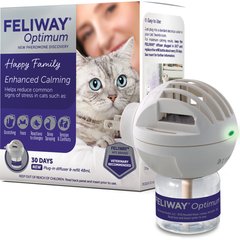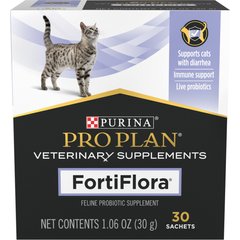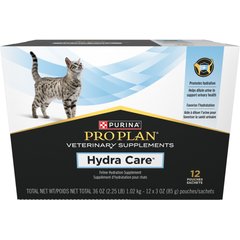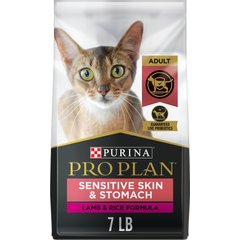What Does Made in the USA Mean for Pet Food?
PetMD Editorial
Because You Care
By Jessica Remitz
We take extra care when planning meals for our families, but what about our pets' food? From manufacturing and labeling to understanding ingredients, it’s important to inform yourself about where your pet food is made and what’s in it before picking up your next bag or can of food.
The Basics
The Federal Trade Commission (FTC) regulates “Made in the USA” claims or labels for all products human and pet related, according to Mindy Bough, vice president of operations for the ASPCA Animal Poison Control Center and head of the ASPCA’s Pet Nutrition Services. She is also a founding member of the Academy of Veterinary Nutrition Technicians.
For a product to carry a “Made in the USA” label, it must be made from all, or virtually all, products from the United States. For pet food, that includes the packaging, ingredients, and production of the food, Bough said. If a company uses a “Made in the USA” label but sources products from another country, they must have a disclaimer on the packaging (e.g., “Made in the USA with lamb from New Zealand"). For the FTC to investigate a potential concern regarding food labels, a complaint must be filed, said Bough.
What Does Made in the USA Mean for Pet Food?
 Feliway Optimum Enhanced Calming 30 Day Diffuser for CatsRated 3.9 out of 5 stars1565Reviews$29.99Chewy Price
Feliway Optimum Enhanced Calming 30 Day Diffuser for CatsRated 3.9 out of 5 stars1565Reviews$29.99Chewy Price Purina Pro Plan Veterinary Diets FortiFlora Powder Probiotic Digestive Supplement for Cats, 30 countRated 4.7 out of 5 stars5552Reviews$30.99Chewy Price
Purina Pro Plan Veterinary Diets FortiFlora Powder Probiotic Digestive Supplement for Cats, 30 countRated 4.7 out of 5 stars5552Reviews$30.99Chewy Price Purina Pro Plan Veterinary Diets Hydra Care Liver Flavored Liquid Supplement for Cats, 3-oz pouch, case of 12Rated 4.4 out of 5 stars2572Reviews$14.99Chewy Price
Purina Pro Plan Veterinary Diets Hydra Care Liver Flavored Liquid Supplement for Cats, 3-oz pouch, case of 12Rated 4.4 out of 5 stars2572Reviews$14.99Chewy Price Purina Pro Plan Adult Sensitive Skin & Stomach Lamb & Rice Formula Dry Cat Food, 7-lb bagRated 4.6 out of 5 stars2215Reviews$28.08Chewy Price
Purina Pro Plan Adult Sensitive Skin & Stomach Lamb & Rice Formula Dry Cat Food, 7-lb bagRated 4.6 out of 5 stars2215Reviews$28.08Chewy Price
Manufactured “By” vs. “For”
A label or statement that says something is “manufactured by” identifies the party responsible for the quality and safety of the product and location, according to the FDA. A label that says “manufactured for” or “distributed by” indicates that the food was manufactured by a company other than the one selling the product. This is a common practice with private label pet foods. A pet food company that uses their own facilities versus co-manufacturing or manufacturing off-site allows for better quality control as it relates to ingredient sources and processes, Bough said. Pet food companies that use their own manufacturing facilities are also able to set higher quality control standards (e.g., isolating raw ingredients from contact with dry products) and are better equipped to deal with quality control issues.
Limiting the Dangers of Pet Food Recalls
There are a number of reasons pet foods are recalled, including contamination with inappropriate ingredients, incorrect ingredient or nutrient amounts, and food borne pathogens like Salmonella. This is another reason why many experts recommend choosing an American-based food manufacturer that uses specific quality control measures to assure the consistency and quality of the pet food. It reduces the likelihood that the pet food company will have to issue a recall, and even enables them to hold products at the factory and wait until test results confirm that they are safe before shipping the products.
If you do suspect a problem with your pets' food, stop feeding them that brand of food immediately and contact the product manufacturer and your vet to report your concern. Here is a recent list of pet food recalls.
Don't Be Afraid to Ask Questions
Pet food manufacturers should not be afraid to answer your questions, least of all a manufacturer that uses a "Made in the USA" label on its pet food. Who formulates your diets, and what are their credentials? Where are your diets produced and manufactured, and can this plant be visited? These are just some of the questions you should be prepared to ask a pet food company you are currently buying from or are considering buying from.
Tips for Pet Food Shopping
The best way for most pet owners to provide adequate nutrition for their pets is to feed them high quality commercial food, such as those offered in veterinary offices and pet supply stores, Bough said. The ASPCA generally doesn’t recommend a generic or store brand as a first choice.
It’s important to feed your pet a diet based on its age, breed, activity level, and weight or health condition, Bough said. Your vet will be the best option for getting advice on how to best feed your pet and what specific products to try.